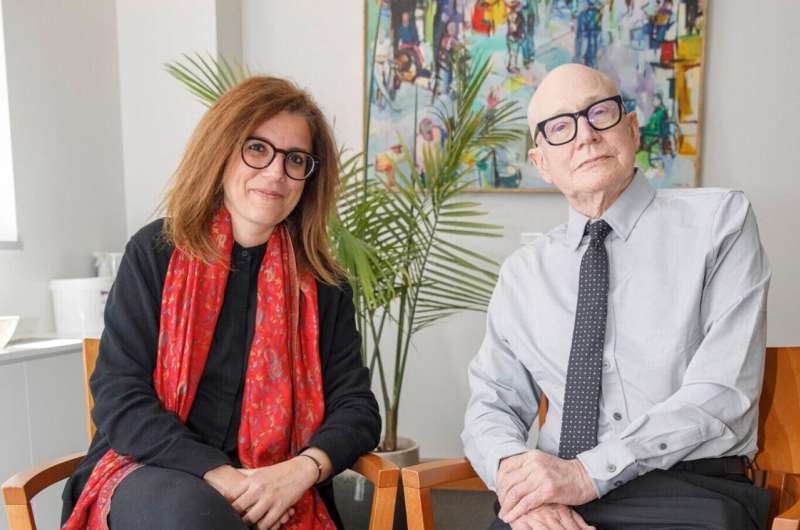This article has been reviewed according to Science X's editorial process and policies. Editors have highlighted the following attributes while ensuring the content's credibility:
fact-checked
peer-reviewed publication
proofread
Q&A: Medical historians examine organization's silence over rise of Nazism

In December, the New England Journal of Medicine began a process of self-examination, publishing articles about the journal itself and its handling of a series of key historical injustices in medicine, including eugenics, slavery, oppression of Native Americans, and, in an issue published in April, the rise of Nazi Germany.
One major challenge, according to two medical historians, is how little the NEJM had to say about Nazism and its systematic and genocidal oppression of Europe's Jews beginning in 1933, when Adolf Hitler came to power.
That came as something of a surprise to Allan Brandt, the Amalie Moses Kass Professor of the History of Medicine and professor of the history of science, and Joelle Abi-Rached, Ph.D. '17, the Mildred Londa Weisman Fellow at the Radcliffe Institute for Advanced Study.
The pair contributed to the series, which was initiated by David Jones, the A. Bernard Ackerman Professor of the Culture of Medicine. Brandt praised the publication for its willingness to face what may be an uncomfortable history.
With so little material available, the two researchers, in a conversation with the Gazette, discussed their dilemma: How do you parse a near silence? This interview was edited for length and clarity.
Knowing the prevailing attitudes toward race and ethnicity in the World War II era and the decade leading up to it, were you expecting to find a complicated situation?
Brandt: Yes. The New England Journal's effort is very similar to what Harvard did in its exploration of slavery on campus—Harvard faculty and administrators held slaves and did not challenge slavery often. These are the kinds of institutional self-observations that I think are important. It's often been perceived as a reputational risk in opening up the archives and facing these things. But I think the reputational risk is in not doing it and NEJM very appropriately recognized that.
When we look at your specific findings, what do you think is most important?
Brandt: When our colleagues were working on other papers in this series and ran their digital investigations, they literally came up with hundreds of hits. For us, the experience was like putting a search term into Google and getting no response. We expected that, given the dimensions and the horrors of the Holocaust, we would find that NEJM said a lot during that time. But our initial finding was that there was almost nothing.
Abi-Rached: The omission, absence, and silence startled us, so we made an extra effort to find anything that was written on the rise of Hitler. We did come across a few items and these became the backbone of the paper. They were illuminating.
One piece published in 1933 is a very short piece that even people who have read our paper have trouble finding. It's a short communique published at the end of a very long and tedious paper on surgery. The communique, "The Abuse of the Jewish Physicians," is revealing because the concern was not discrimination or persecution but the fact that these Jewish physicians were dismissed and lost their livelihood. That was the only piece published in 1933.
Then there is a controversial, longer piece published in 1935 by Michael Davis, an eminent health reformer, with a German nurse who later research would reveal was a Nazi sympathizer. And then there was nothing until 1944.
In 1944, NEJM published its first editorial, an important piece in which the journal takes a stance on the humanitarian disaster that the "Nazi tyranny" had caused in occupied Europe.
Then you have another key article published in 1949, long after the conclusion of the Second World War, by Leo Alexander, who was a Viennese-born neuropsychiatrist who gathered evidence for the trial of the doctors at Nuremberg. So, this absence of debate around the rise of Nazism and its persecutory, racist laws became our guiding thread.
Journal information: New England Journal of Medicine
Provided by Harvard Gazette
This story is published courtesy of the Harvard Gazette, Harvard University's official newspaper. For additional university news, visit Harvard.edu.




















